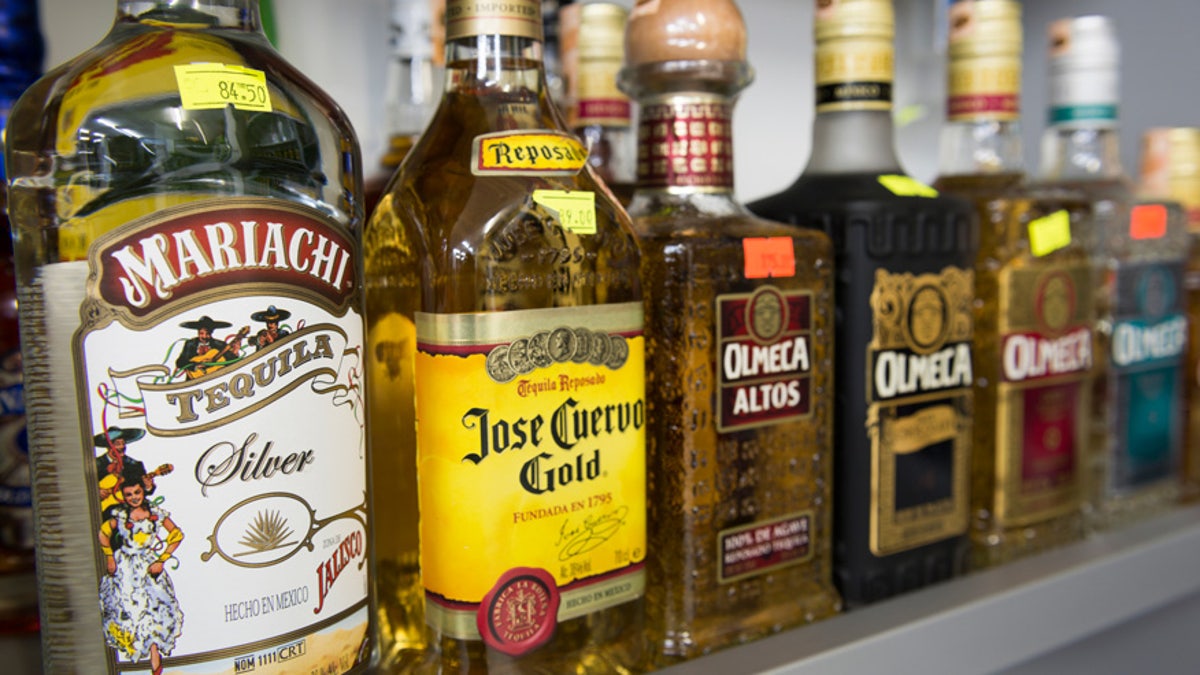
We've been drinking tequila all wrong! (iStock)
The U.S. and Mexico appear close to reaching a new trade agreement, fulfilling President Trump’s pledge during his election campaign to renegotiate the quarter-century old North American Free Trade Agreement (NAFTA) – an achievement few would have predicted.
At least around the bargaining table, the U.S. and Mexico have cast aside much of the poisonous rhetoric that makes for good cable TV as they close in on a replacement for NAFTA.
President Trump would like to nail down a trade accomplishment before the midterm elections in November, understanding that he needs to focus more on his trade conflict with China and less on ones with America’s neighbors.
On the Mexican side, outgoing Mexican President Enrique Pena Nieto would very much like to burnish his legacy with a new treaty before he leaves office Dec. 1.
At the same time as Mexico and the U.S. have grown closer to a deal, the third partner in NAFTA has been left OUT in the cold. U.S. and Canadian negotiators haven’t met for four weeks, and President Trump indicated last Thursday that he’s in no hurry.
“We’re not negotiating with Canada right now,” Trump said. “Their tariffs are too high; their barriers are too strong. So we’re not even talking to them right now.”
The interdependence of the world economy means that more and more U.S. products have not-so-visible international aspects – as the links between Mexican tequila and U.S. bourbon show.
One certainly hopes that the U.S. and Canada, which have traditionally had extremely close relations, work out their differences. But the thaw in trade relations between Mexico and the U.S. is welcome news. While a June Gallup poll found that 46 percent of Americans don’t believe trade with Mexico is fair, U.S. businesses have a much more favorable view of trade with our southern neighbor.
Take spirits, a growth industry in both countries. Tequila is Mexico’s national spirit, and the NAFTA agreement itself recognizes it as a “distinctive product” of Mexico. But while tequila has to be distilled in Mexico, foreign investment in the industry is welcome.
At least eight tequila brands are tied to the U.S. The list includes Herradura, which is owned by Kentucky whiskey distiller Brown-Forman. Also on the list is Patron, which was owned until earlier this year by John Paul DeJoria of Paul Mitchell hair products fame. He sold his 70 percent stake in Patron to Bacardi, which is based in Bermuda, for $5.1 billion.
All of the new investment that has flowed into the tequila industry has completely changed the image of the product. In the 1990s, over 90 percent of tequila consumed in the U.S. went into margaritas. Only 2 percent was high-grade premium tequila (made from 100 percent agave). Now over half of U.S. imports are premium labels. And artisanal brands owned by the likes of celebrities George Clooney and Justin Timberlake have given the spirit real cachet.
Tequila is still a fully Mexican product, but free trade with the U.S. and Canada has meant investment that has turned it into an international sensation.
“NAFTA and tequila have grown together over the last 25 years,” says Luis Velasco Fernandez, the president of Mexico’s National Chamber for the Tequila Industry. “Both countries now have stakes in the success of Mexican tequila and U.S. whiskey, and often there is shared ownership.”
But for all the cross-investment in spirits, the U.S. whiskey industry is still fragile. Bourbon production in the U.S. only recently recovered from a long slump to reach the levels of the 1970s. Even if there’s a successful NAFTA renegotiation, the industry could be hit hard by retaliatory tariffs exchanged between the U.S. and the European Union, which is the biggest market for the $1.5 billion in spirits that America now exports.
In June, the European Union announced it would slap a 25 percent tariff on imported U.S. whiskey if tariffs imposed by the Trump administration on steel and aluminum weren’t lifted. “This could be the end of the bourbon boom,” Ken Lewis, the owner of Kentucky’s New Riff Distillery, lamented to CNBC.
President Trump’s goal of forging a new U.S. trade policy that creates a more level playing field for U.S. products is a worthy one that has eluded all of his predecessors. Some of his tough talk and hardball actions were probably overdue.
But as the Trump administration moves from trade target to trade target – bouncing from Mexico to China to the European Union – it’s important to consider just how quickly such tactics could also boomerang. The interdependence of the world economy means that more and more U.S. products have not-so-visible international aspects – as the links between Mexican tequila and U.S. bourbon show.
A tough negotiating stance on trade by the U.S. is one thing. Accidently starting a trade war would have consequences that would hurt all players – and could drive many of them to need a good stiff drink. But they would then find it’s suddenly a lot more expensive.
